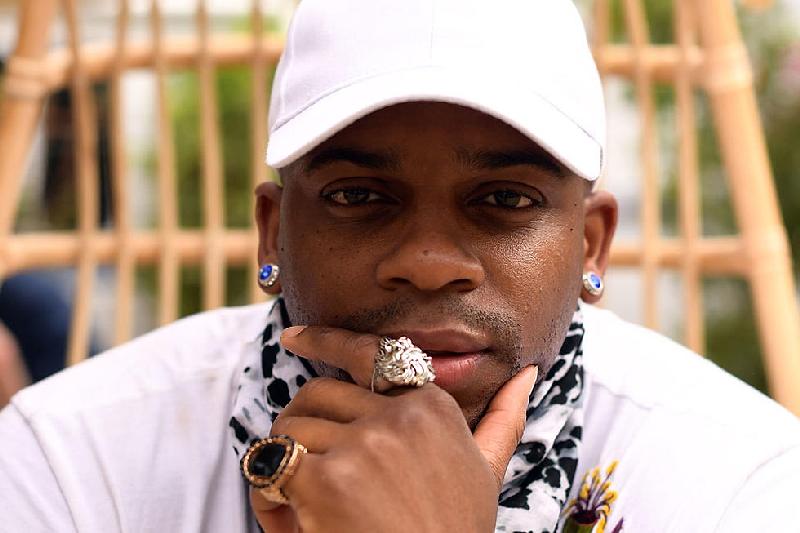
*Robert L. “Bob” Johnson is the Founder and Chairman of The RLJ Companies, an innovative business network that owns or holds interests in businesses operating in hotel real estate, private equity, consumer financial services, asset management, automobile dealerships, sports and entertainment, and video lottery terminal (VLT) gaming.
Prior to forming The RLJ Companies, Johnson was founder and chairman of Black Entertainment Television (BET), the nation’s first and leading television network providing quality entertainment, music, news, sports and public affairs programming for the African American audience.
Johnson continues to attract and manage capital and create value for investors, and in 2012, announced the successful creation of RLJ Entertainment, Inc., one of the largest independent global distributors of digital and video content. RLJ is the third company he’s taken public. In 1991, BET became the first African-American company to be traded on the New York Stock Exchange. And RLJ Lodging Trust, a $2 billion market cap hotel real estate investment trust (REIT), went public in 2011.
In 2001, Johnson sold BET to Viacom for approximately $3 billion while remaining the Chief Executive Officer through 2006. The following year, he was named one of “The 25 Most Influential Business Leaders of the Past 25 Years” by USA Today.
In 2014, three of Johnson’s holding companies were featured on the Black Enterprise 100s list: RML Automotive, LLC ranked 1st in a category of 60 in the auto dealership rankings; and RLJ Equity Partners, LLC and RLJ Credit Management, LLC ranked 12th and 14th respectively on the private equity firms list.
Currently, Johnson serves on the following boards: RLJ Lodging Trust; RLJ Entertainment, Inc.; KB Home; Lowe’s Companies, Inc.; Retirement Clearinghouse; Strayer Education; Elevate Credit, Inc.; The Business Council; and the Smithsonian Institution’s National Museum of African American History and Culture.
Johnson holds a Master’s degree in Public Affairs from the Woodrow Wilson School of Public and International Affairs at Princeton University and a Bachelor of Arts in Social Studies from the University of Illinois. Here, he talks about his recent launch of the Urban Movie Channel (UMC), a premium subscription-based video streaming service exclusive to RLJ Entertainment.
UMC is the first urban focused digital streaming channel devoted to the acquisition of feature films, comedy specials, stage plays, documentaries, music, and entertainment for the African American and urban audiences. Access to the impressive on-demand streaming library is available with online from mobile devices, and on the Roku platform.
Robertson Treatment: How do you see this new platform being used in the new world of multiple screens experiences. Will you be bringing your content to all of the computer and other available functionality, such as social media and interactive technology?
RLJ: UMC is an over the top, digital streaming channel that is subscription-based, meaning that the consumer pays to get the service. It is targeted to the Urban/African-American audience, but we believe good entertainment is colorblind, so it is available to everybody, essentially, who wants to go to the site. If you have a web browser, you can get UMC. Our goal with UMC is to bring the creative talent in the African-American community, which in many ways is underemployed, to the consumers who desire to see the content that projects their images and tells their stories. And it is designed to create an economic model where members of the creative community can monetize their talent and where the consumers will have a choice to purchase product and content that they can see on any device, whether it’s their flat screen TV, mobile phone, I-Pad, or any other device that can receive digital streaming content. We believe that given the choice, these consumers will see UMC as a service they’d like to have along with Hulu, Netflix, Amazon Prime or HBO Go in order to get content not available elsewhere, and at the price they want.
RT: Are you interested in extending your distribution vision to include Black World Cinema?
RLJ: “Absolutely yes! The great thing about the digital world and the internet is that you can instantly be available to a global marketplace. And there is a tremendous amount of creative content in what I would call the multicultural or diaspora of people of color that we believe would clearly be attractive to audiences here in the U.S. And by the same token, content produced here would be attractive to people around the world. African-American creative content has proven its ability to travel. Jazz is a universal music enjoyed around the globe, as well as are other African-American cultural influences, such as hip-hop and rap music. We want to make sure that happens with feature films and other content that hasn’t been exposed as much as the music in terms of its potential to appeal to a wider audience. I also think this represents a unique business opportunity in terms of the exchange of content between UMC and other platform distributors around the globe, whereby we can share content distribution as well as provide for distribution of content that would be acquired and licensed.
RT: Do you think there is any possibility whatsoever that African-Americans will organize their consumption power in such a way that it can be leveraged?
RLJ: African-Americans already organize their consumption power – they just don’t leverage it. For example, African-Americans as a whole watch more television than any other population group in the country in terms of total hours spent in front of the TV. African-Americans are heavy consumers of pay TV and cable TV. African-Americans are early adopters of new technology, whether it’s Twitter, Facebook or Instagram. The key is that we have to make sure that choices are available to us, so that our purchasing power will yield content that we want to see. For example, there are two million African-American cable subscribers who also take HBO and Showtime at a cost of about $40 a month. That’s a billion dollars of buying power. We’d like to see some of that billion dollars of buying power go to UMC. We promise you that that money will flow to the creative talent, both in front of and behind the camera, to deliver programming that specifically appeals to your viewing interests. So, this new technology, allowing you to leverage your dollars, will change the way African-Americans access content and also change the way that content is produced to appeal to African-Americans.
RT: Do you think it would be possible for another Black owned media conglomerate, like BET, to emerge in today’s environment?
RLJ: It’s definitely possible, but it would be very difficult to do in this environment. It was difficult when I started BET. Today, the internet makes it possible for a lot of African-American content to flow freely to the consumers since there are no gatekeepers, and it is global in terms of its accessibility. We at RLJ Entertainment are laying the foundation to be sort of a BET in the Digital Age by creating the distribution platform of the Urban Movie Channel, by licensing content from independent producers of urban content, by helping them produce that content, and by promoting the awareness of it. We believe that as a first mover in this space, RLJ Entertainment has the potential to become a success story like BET and, obviously, I have a lot of experience in making that happen.
RT: How is your focus today different from at the inception of your media empire?
RLJ: I think the difference is more the technology than the focus. When I started BET, its carriage was totally dependent on the development of cable television in the urban market. Its programming was totally dependent upon getting programming primarily from the networks. Its programming was dependent upon advertising support and cable carriage. And the ability to market it was limited to either buying black radio or going into urban oriented magazines like Ebony, Jet or Essence. Today, there are no gatekeepers in the digital space. I don’t need to talk to a cable operator. I don’t have to go to Ford Motor Company or Procter and Gamble for advertising support. I don’t need to approach the networks for programming. There’s tremendous talent out there producing programming. And I don’t have to spend a lot of money on radio to reach the local markets. I can promote on Facebook and stream information on Youtube while the artists talk about their films on Twitter. The avenues for getting the word out have expanded vastly since when I started BET thanks to the technology revolution of the internet and the Digital Age.
RT: If you were an independent filmmaker today, would you go after theatrical distribution, streaming, mobile or cable?
RLJ: I’d really focus on delivering my content in the digital space as a way of getting a strong following that would recognize your creative storytelling ability. Once you achieve that, you’ll have a calling card to go to the studios or TV networks to show the passion for your content as reflected in your number of viewers. I would take advantage of that. The costs of distribution and marketing are lower. I would certainly start there and then move up to the other levels if you so desire. But I clearly think the future is in digital distribution of content as opposed to the traditional models. .
RT: What can the average person do to help improve diversity in entertainment media?
RLJ: Well, the most important thing that the average consumer can do is to take advantage of the opening of the marketplace where consumers controls what content you watch or gain access to. Because of the availability of all sorts of platforms, you’re no longer tied to cable, the networks or the satellites. You can be your own programmer. And that’s the beauty of UMC. For the first time, urban content can flow directly to the consumers without any gatekeepers. So you’re not controlled by what advertisers are willing to sponsor, by what studio heads decide to produce, or by the cable operators who will force you to pay for content that you don’t want to see through their bundled channels. You are your own curator; you are your own programmer. So, to me, the smartest thing any consumer can do is subscribe to whatever it is you want to see. And the more people who subscribe to urban content, the more of it will be produced for your enjoyment.
RT: How can a young black child become a Bob Johnson of today? What steps would you suggest?
RLJ: Well, that’s a tough question to answer. I believe that the most important thing that most mothers want for their son or daughter is character. By character, I mean understanding and accepting responsibility; being respectful of themselves and others; getting the education they need to be successful; striving to become a productive member of society; and exhibiting a willingness to work hard to get ahead. All those things put together. I think that any mother or father should try to inspire their children to believe in themselves, to be willing to work for what they receive rather than expect a handout, and to be proud of that work.
In one of his speeches, Dr. Martin Luther King said something to the effect of, “Don’t be embarrassed by whatever labor you’re undertaking. If you sweep the streets, sweep the streets the way Michelangelo painted pictures.” In other words, be committed to what you’re doing. And if that’s the case, you’ll more than likely get the recognition that will enable you to continue to move up and better yourself, better your community and better your society.
AUTOMOTIVE SPIN
2015 e400 cabriolet
Sleek and supremely elegant, 2015 e400 cabriolet is a ride that is off the charts! A great looking car from top to bottom – e400 is substantial driver assist technology, not only physically, but also in terms of how it performs on the road. As I watched it pull into my driveway, I knew that I was in for a good time!
Wow Factor: This ride is loaded with plenty of wow beginning with its distinguished exterior and refined interior design. However, most importantly, the e400 cabriolet succeeds with a high performance that will definitely exceed expectations. Its array of safety features are equally impressive!
Ride: The e400 was a thrill to drive. From the ease of its acceleration, to its excellent handling and maneuverability, this ride immediately inspires driver confidence. Equipped with a 3.0 liter V6 engine and 7-speed automatic transmission, the e400 offers the power to manage most driving experiences.
Comfort: It will come as no surprise that the e400 offers interior comforts are first-rate, with Mercedes covering every base to insure a comfortable ride. The interior cabin is smooth and quiet, with firm seats that offer great driver support and flexibility. The high-quality workmanship found on my ride added an added touch of class and the first-rate COMAND electronic interface will greatly enhance driver management.
Spin Control: I suspect that the e400 cabriolet will have little difficulty attracting its target audience. Although its base price is in the low $60s, the e400 is definitely an investment that will pay off handsomely. I highly recommend!
Grade: B+
Visit: www.robertsontreatment.com
Copyright 2015, Robertson Treatment, LLC – all rights reserved
We Publish News 24/7. Don’t Miss A Story. Click HERE to SUBSCRIBE to Our Newsletter Now!





